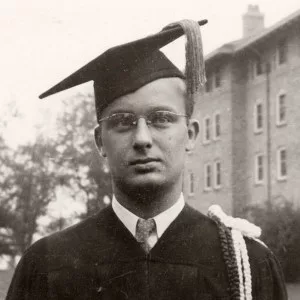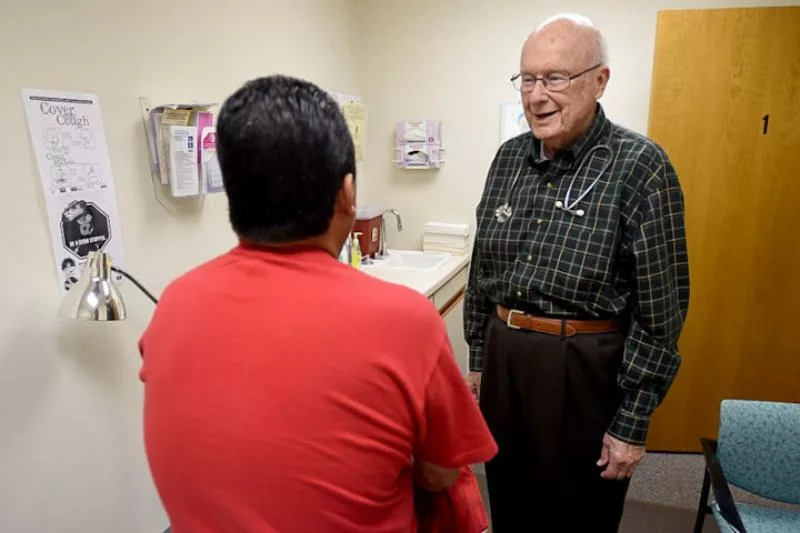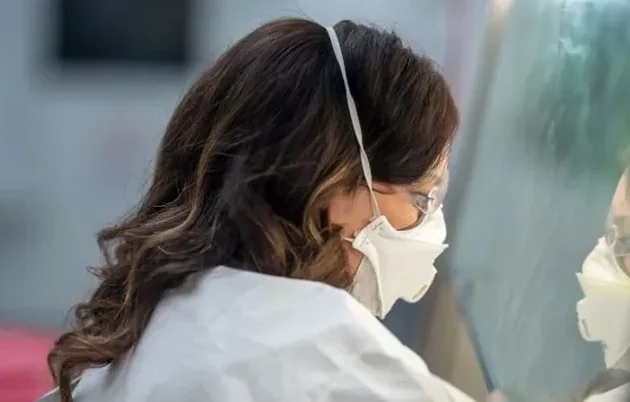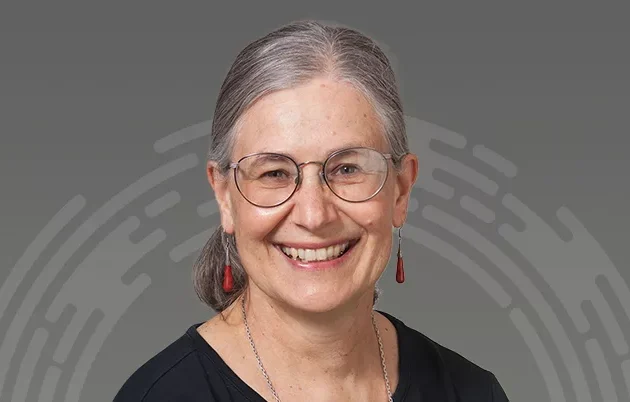Established in 1987 in space donated by First Presbyterian Church, and initially called the Racine County Community Clinic, the Health Care Network provides free and low-cost health care to Racine County residents who are uninsured and have limited incomes. Many are seen in physicians’ practices throughout the county, and others are seen at an on-site clinic staffed by volunteer physicians, most of whom are retired.
Little was among those who helped establish the on-site clinic in the downtown office of a retiring obstetrics and gynecology physician who offered her space for free in 1990 to test the concept. In 1992, with evidence of success, the agency moved to an independent site where Little became the medical director, a position he still holds.
Myriad donors — including businesses and hospitals — support the program financially. The clinic cares for patients with many types of conditions, often related to obesity, diabetes and hypertension. Hospitals provide free or reduced-cost lab tests, and radiology and rehabilitation services for patients.
“When we started the clinic, we thought it would be needed for only a couple of years because President Clinton’s administration was talking about establishing a single-payer universal system. But the need has continued for 30 years,” states Little, who has served on the Health Care Network Board of Directors and as president, and has recruited volunteers. “I used to work there two full days each week, but I have scaled back to about a halfday each week, mostly in internal medicine,” says Little. “I don’t know how much longer I can continue working, but they seem to like my services. I think that’s what has helped to keep me alive this long.”
Describing his motivation to get involved, he recalls, “Retirement was a difficult adjustment, from having a lot of responsibility to none. I did not want to spend all of my time playing golf.”
Little found opportunities to continue functioning in medicine. He served on various boards, including the City of Racine Board of Health and Geriatric Assessment Center; and for 10 years, he was the medical director of a nursing home that had been on the verge of losing accreditation but was rescued.
He says, “Many retirees have enjoyed volunteering at the Health Care Network’s on-site clinic, and some have done so until death or disability. I’m the only physician from our original group.”
Three additional SMPH alumni are among the current on-site clinic volunteers; they are:
- Nicholas Akgulian, MD ’90, who volunteers once a month in addition to maintaining a medical practice, where he accepts HCN patients, and participating in mission trips;
- Richard Odders, MD ’73, who volunteers twice per week, following retirement; and
- Charles Leadholm, MD ’75, who volunteers two days per month since retiring from a Racine emergency-medicine practice.
Little says, “For more than 10 years, Dr. Leadholm has driven from his Madison home to Racine to volunteer two full days each month at the clinic. This is noteworthy!”
In 2007, the American Medical Association Foundation presented the Jack B. McConnell Excellence in Medicine Award to Little in recognition of his work at the Health Care Network; he donated the cash award to the clinic.
Alison Sergio is the Health Care Network executive director, a position held for decades by Barb Tylenda. Over time, the clinic expanded in size and added dental services. Bilingual staff provide translation for patients, when needed.
According to the Health Care Network web site, “Over the past 31 years of service to Racine County, the organization has scheduled 217,000 appointments and assisted patients in obtaining close to 93,000 prescriptions, valued at more than $48 million in care. This is only made possible through the generosity of our talented volunteers, giving donors, and dedicated staff.”
Through major fundraising, the Health Care Network moved in October 2019 to a larger building in downtown Racine that can accommodate new services, such as support groups.
The Racine Journal-Times quoted Sergio as saying, “We are so thankful for the support the entire community has given us for the last 30 years. The Racine community is full of people who are dedicated to improving the health of their neighbors.”
Tylenda says Little’s character and nonjudgmental manner are particularly notable.
“His caring, respectful approach to all patients is admirable. He listens well and provides them with the utmost care.”
Such dedication keeps Little moving, literally.
“I have severe pain every day, including from a hip replacement that still gives me problems after 11 years. But I forget about my pain when I’m at the clinic,” he notes.
Now widowed, Little is grateful for the support of his grown children, two of whom live in Racine and can help when needed. His children also are following in Little’s legacy of service: one is a nurse who volunteers at the on-site clinic, and another is a pathologist who donates services to the Health Care Network’s patients.
Little also plays twice-weekly games of duplicate bridge — a challenging game that keeps his mind sharp — with members of a local club. He enjoys the camaraderie.



